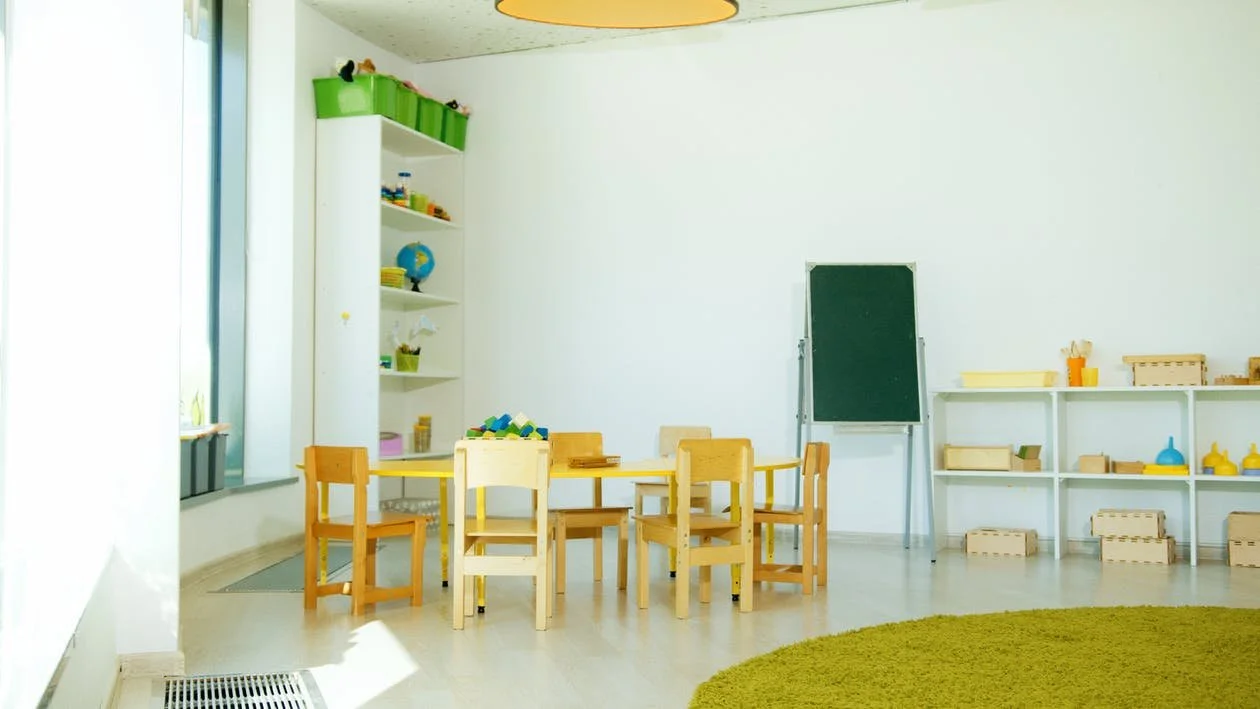I’m An Early Educator, and I am Worried… by Nicole Willard
During challenging times teachers are usually there to support students as they navigate the scary topics. From school shootings to terrorist attacks, we have been there to get our students through. We watch as these events change their outlook of life in an instant. We watch as they act these big events out in their play and talk about them with their friends. We help them process it through delicate conversations, all while letting them know it’s eventually going to be okay. That there are people working hard to make changes to keep us safe. This event is different though. This pandemic is not an experience that changes things in an instant. It is an ongoing event reeking a silent havoc on our lives.
COVID-19 feels like it snuck up on us. It has been coming up in class in a greater context. There was the occasional mention of family members overseas quarantining, or conversations about the scary virus coming to kill us all. As early educators we help to correct their misconception. We assure the children that we are doing everything we can to keep them and their families safe. Then the shift happened. No countdowns. No discussion. No goodbyes. Thursday‘s “see you tomorrow!” quickly turned to not knowing when we will see each other again. Is it 2 weeks? 4 weeks? Longer? We just don’t know.
That’s where the worry sets in...
I worry about my students. Do they know we are thinking of them? Do they think we forgot them? When will they see their friends next? When is the next time they will get to go to their favorite museum or aquarium? Will they be able to have a birthday party? Are they getting the consistency they need in a world that feels anything but consistent?
I worry about their families. Are they fortunate enough to practice social distancing? Are they taking the necessary precautions to keep one another safe if they do not have that luxury? Will they have access to testing if they need it? How long will they be able to manage without childcare? Are they finding ways to stay connected in a time where distance is encouraged?
Does their family have the physical and emotional support they need to get through this?
I worry about my center. What does our day-to-day operations look like after this? Will we have to wipe toys down every time we use it? Will we be able to use sensory materials? Will we continue to serve snack family style? Will we have the gloves and disinfectant that we need to keep kids healthy? Will we go on our trip to the farm? Are we going to be able to take our community trips to the fire station? Will we continue having family events? Are families still going play at the park after school is out? Will we have our end of year celebration?
I worry about our future. Will our communities survive the financial devastation this could have? How will this experience shift the children’s perspectives of life? Will we get the opportunity to travel without worry as we once did? How long will we live in anxiety of this happening again? What does thefuture of education look like?
I worry about the impact this has on the ECE field. How much longer will teachers be able to get paid? What about those whowork in centers that cannot pay them? How many educators will have jobs when this is over? What will happen to those educators working in essential care centers? What about the impact in children in those essential care centers? Are centers that have to close going to be able to make it out of the financial hole this is digging? Will this have a big enough impact for society to take early educators serious? Will people see we are more than babysitters? Will those people fight to get us the compensation they finally realize we deserve?
The thing is, there is a lot to worry about. However, those are things we as educators do not have control over. We can choose to focus on the shift this life changing event will have on our lives when it’s done, or we can focus on what we can control now. Most of our students will remember this moment in time for the rest of their lives, but as the adults in their lives we can have a big impact on what this time will feel like. We can create so many positive moments that maybe, just maybe it won’t feel so scary. We can send them letters in the mail to let them know we are thinking of them. We can create communities online to share how we are spending our “home days.” We can set up video chats to connect and let them know we miss them. We can create experiences that bring some sort of familiarity to their lives. We can let them know they are safe. As educators during the pandemic, we have the unique chance to use ourrelationships to support our students during these life changing moments, not just after it.
We can acknowledge the uncertainty, while also taking the time to do as Mr. Roger suggests and “look for the helpers.” We can show gratitude to the essential personnel putting themselves at a greater risk to keep us safe and healthy. There’s no telling when this will end, but we know it will. Things will never go back to what normal was, yet we can help support children and families as we collectively find what our new normal will be.





